When we know a winter storm is coming where the likelihood of power outages and road closures may occur, preparedness brings peace of mind instead of panic. These tips on how to be prepared for a winter storm cover food and water storage ideas and more during a power outage. Read on to learn more!
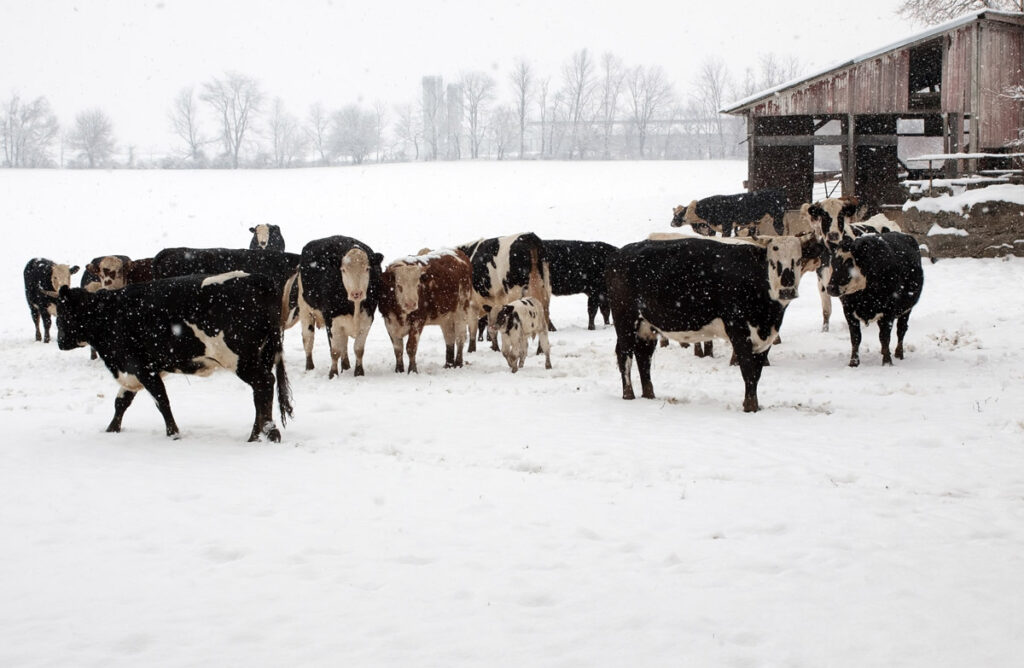
Note: This blog post has been updated to include multiple podcast episodes on how to prepare for a winter storm. I've had multiple listeners over the years ask for ways to handle freezing temperatures and winter emergencies on the homestead. So download each of these podcasts and listen to them at your leisure!
Listen below to the full podcasts of the Pioneering Today Podcast, where we don’t just inspire you but give you the clear steps to create the homegrown garden, pantry, kitchen and life you want for your family and homestead.
The Importance of Preparing for a Winter Storm
Living in the Pacific Northwest and being prepared for winter go hand in hand with our pioneering, homesteading lifestyle. Ways to keep warm without electricity is a reality we live with. We can get feet of snow, blustery winds knocking out power lines and below-freezing temperatures.
It’s comforting to have conversations about the importance of preparing for emergencies and winter storms without being fearful. These self-sufficient homesteading tips for the long haul keep us prepared for the winter season. It’s a responsibility our family takes seriously!
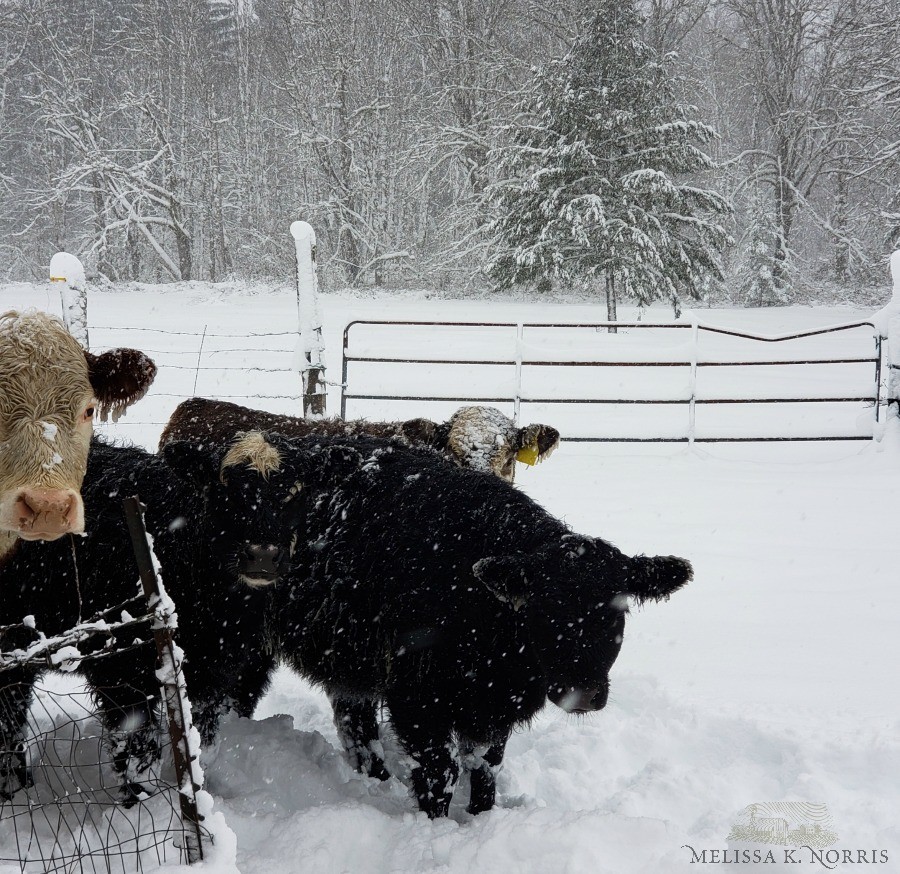
What Not to Do During a Winter Storm
We don’t know what the future holds; weather is unpredictable, and oftentimes, we see people operating out of fear when tough times like winter storms come along. Panicking and feeling helpless won’t help your situation. Being as prepared as you can will bring peace.
Once you make a game plan and start implementing it, your trepidation about what you don’t have will dissipate into what you can do to prepare for winter storms and other emergencies. One step at a time, these tried-and-true tips to prepare your home will help.
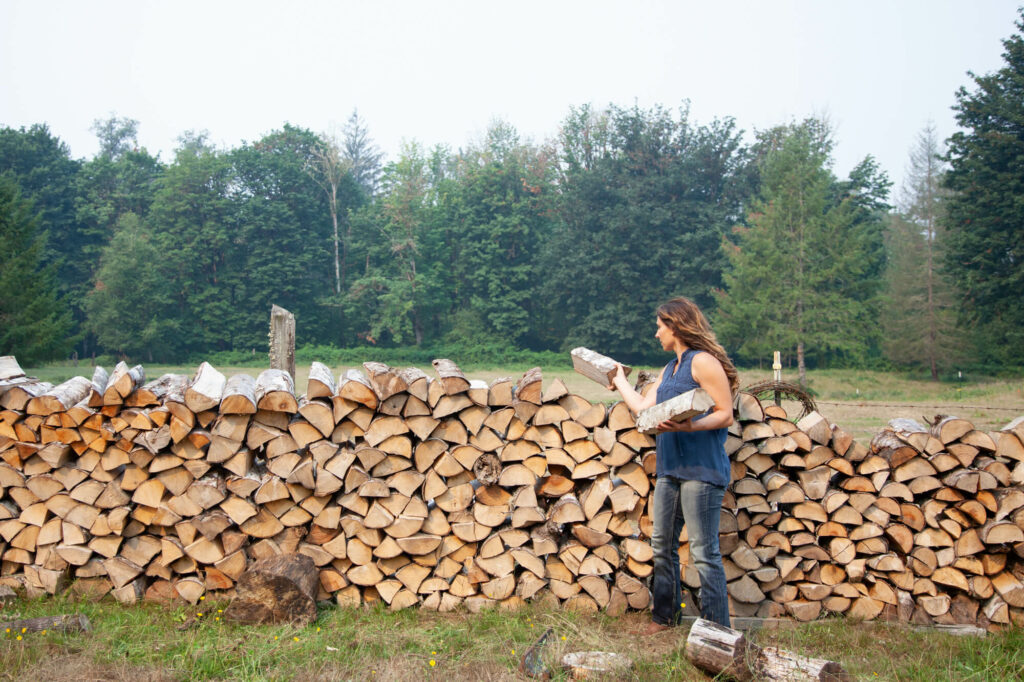
How to Prepare for a Winter Storm
It's the mindset of seeing what can work universally across the board in almost any setting that gets us through the storms in life. We all have different living situations, not just homesteads, so adapting and preparing for what you have is resiliency at its best.
Having the outlook of a military wife concerning homestead preparedness is something I learned from Malori from Black Rifle Homesteading. Her sense of order, planning, and attitude of getting it done as best as possible with what we have in any situation is inspiring.
Wherever your homestead is, or how often it changes, you will need basic things for the trials winter storms can bring. Food, clean water, fuel, a heat source, an alternate power supply, and possibly medications are some areas to be prepared for.
Pro Tip: It’s best to avoid traveling in a winter storm, but if you need to help a neighbor or get supplies, remember these items you need in your car for winter storm preparedness. Also, don’t forget to check your windshield wipers and make sure you have plenty of winter wiper fluid; a clear windshield in a winter storm is important!
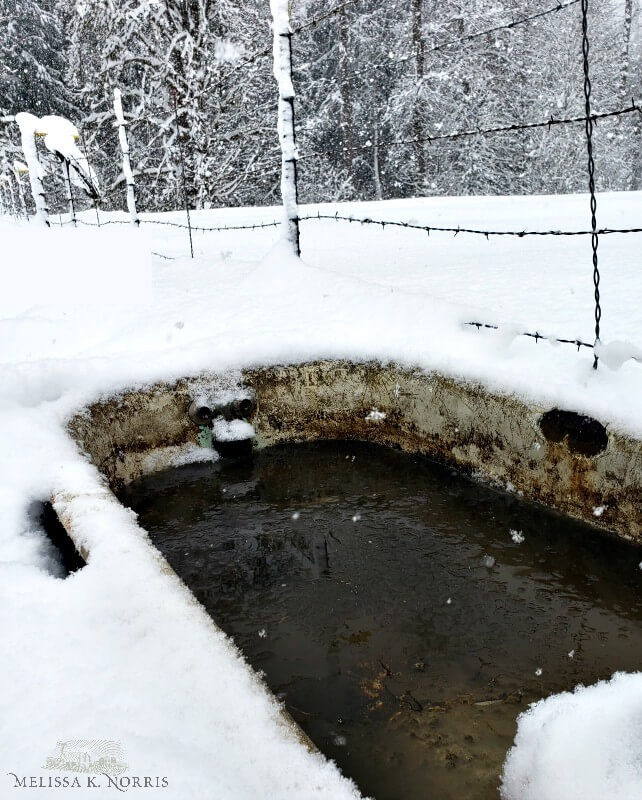
Water
When I know that there is a high likelihood of losing power, the first thing that I do is run water into our clean bathtubs. There are several ways to store and purify water at home.
We are on our own private well, and our generator wouldn’t pump our well when the electricity went out. We saved for years and now have one that will. What a game-changer, it makes me so happy to have running water during a power outage.
We’re also on our own private septic system, which means I can flush toilets into my septic system, but I’ve got to have water to put in the toilets to flush them! Therefore, filling the bathtubs helped solve that situation before we had a generator to run our well. It worked great for years.
The second thing I do is fill up the tea kettle and any of our extra pitchers and water bottles. We keep some water in reserve, in plastic jugs, which is not my preferred method for drinking or cooking. I keep a few glass pitchers and containers filled and on hand for that purpose.
You can purchase and store bottled water and pressure can water that you keep on your pantry shelf in case of power outages.
If your outside faucets are not frost-free, be sure they don’t have any hoses hooked up to them. Drain them completely and store them away until spring. You can also protect faucets with styrofoam covers and by wrapping them.
We have livestock that need water, so we made sure that our faucets were frost-free. I highly recommend this, as our frost-free faucets have never frozen since 2006, when we started living on this homestead.
The stock water tank heater is for our cattle. It keeps the water from freezing, which is crucial. Cattle need water, especially during the cold winter months.
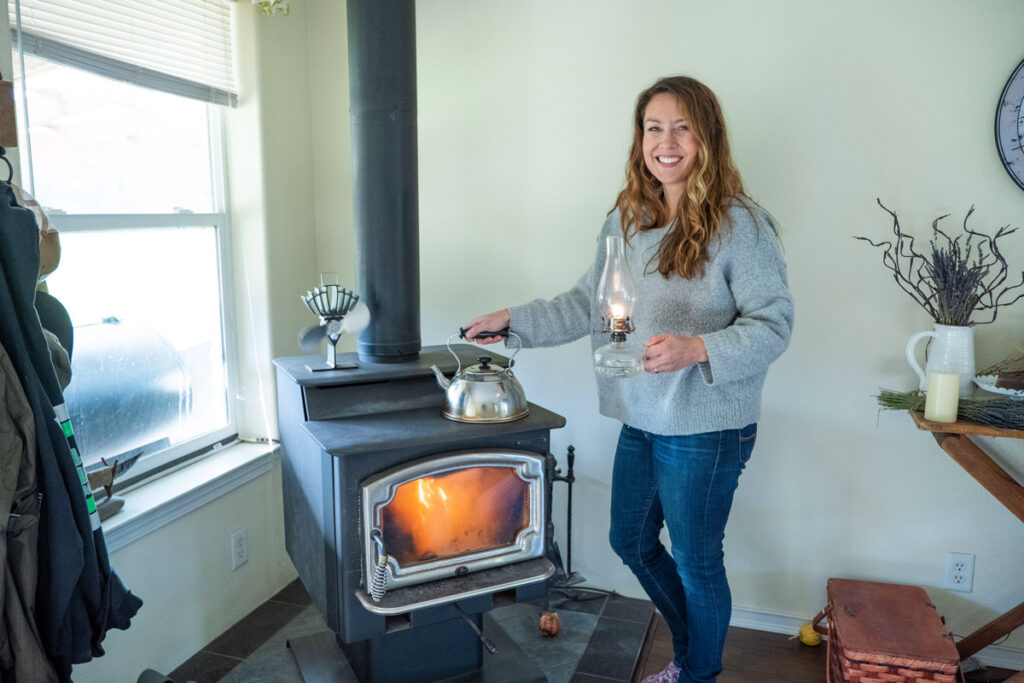
Fuel & Heat Source
You never know when the unexpected freezing rain or heavy snow will break power lines and tree branches. We were homebound for two weeks one year when a huge mudslide prohibited travel. Our heat and fuel sources were invaluable until the crews cleared the roads.
When extremely cold temperatures create havoc, we make sure we have the necessary items to keep us warm and, when needed, cook our food. A simple propane camp stove will work great in a well-ventilated area.
We heat with wood, and knowing how to cook on a wood stove and using other ways to cook off-grid without power are skills we have learned.
We start cutting and stacking dry, seasoned firewood into the woodshed in summer and fall, preparing us for the long winter and spring. I ensure we have extra firewood stacked and ready right outside the back door during a frigid winter storm.
Keeping different fuels in gas cans or propane tanks readily available, along with easily accessible tools to make minor repairs, brings peace of mind in the middle of a winter storm.
Our tractor is a real workhorse; we ensure the fuel lines are intact, the tires properly inflated, and the gas tank is full, so it’s ready to go.
Pro-Tip: A fire extinguisher and first aid kit easily accessible when using wood stoves to heat and cook with is always a good idea!
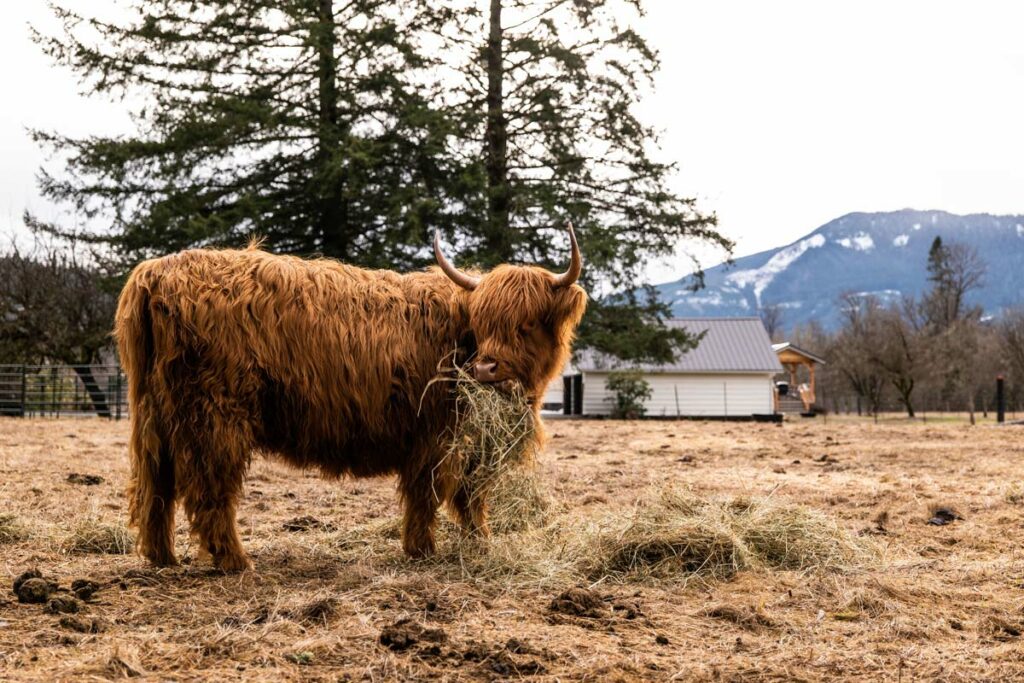
Livestock
If you have pets and livestock, you need to make sure that you have them covered as well. We keep plenty of food and water on hand for our animals, especially as we move into the winter months, so we stock up on animal feed during the summer and fall.
Livestock need more food during cold snaps since they're burning more calories to keep warm. It’s crucial to stock up if you can't get to the store or if it's not on the store shelves for whatever reason. We buy in bulk, providing grain for the chickens in the winter and hay for the cows (we even stock up on dog food!).
People don’t realize the importance of having water available to their cattle in winter, especially during a cold winter storm. When animals are outside in freezing temperatures, they burn more fuel to stay warm. So, they must have extra drinking water to keep their metabolism going.
Keeping the water from freezing with our stock water heater and generator during power outages is vital. We also rotate our chicken waterers and store them in the pump house for easy access. Weatherstripping is effective around outside doors in the winter, especially with wind chill.
Our portable chicken tractor with our chicken coop on top gets moved around our pasture every 2-3 days. I’ve learned the importance of keeping their coop positioned to block the cold north wind and off the frost line, especially during a winter storm.
If you have dogs and cats, find a place inside where they can stay warm. They also need extra water during cold snaps.
Pro Tip: Cat litter or sand sprinkled outside on icy steps or in front of the pump house or outbuildings gives good traction in icy conditions.
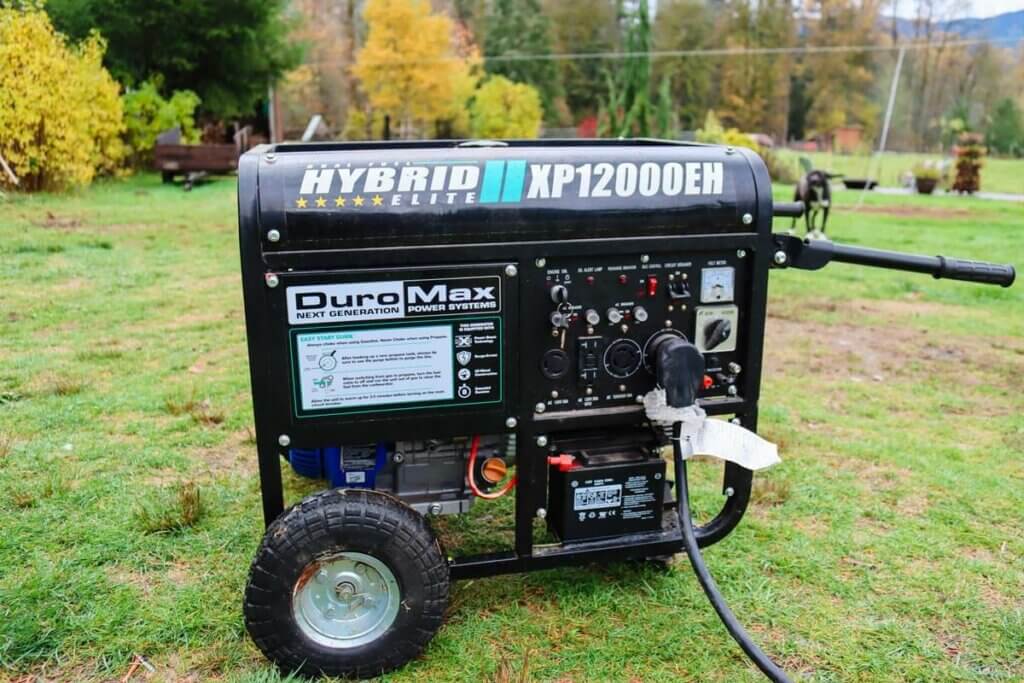
Alternate Power Supply
We haven’t always had a generator, and I realize some people don’t have one as an alternate power supply during a power outage. If you have one, learning the ins and outs of how to use a generator during a power outage is necessary.
We talked about storing fuel for the generator, but equally important is having quality power cords of various lengths readily accessible before the storm hits.
We use a rotation method, plugging in what needs to be powered so everything doesn’t spoil or freeze solid outside. It's tricky and needs attention, but it keeps things running. One day, hardwiring a larger generator into the house will be more convenient, but this system works fine for now.
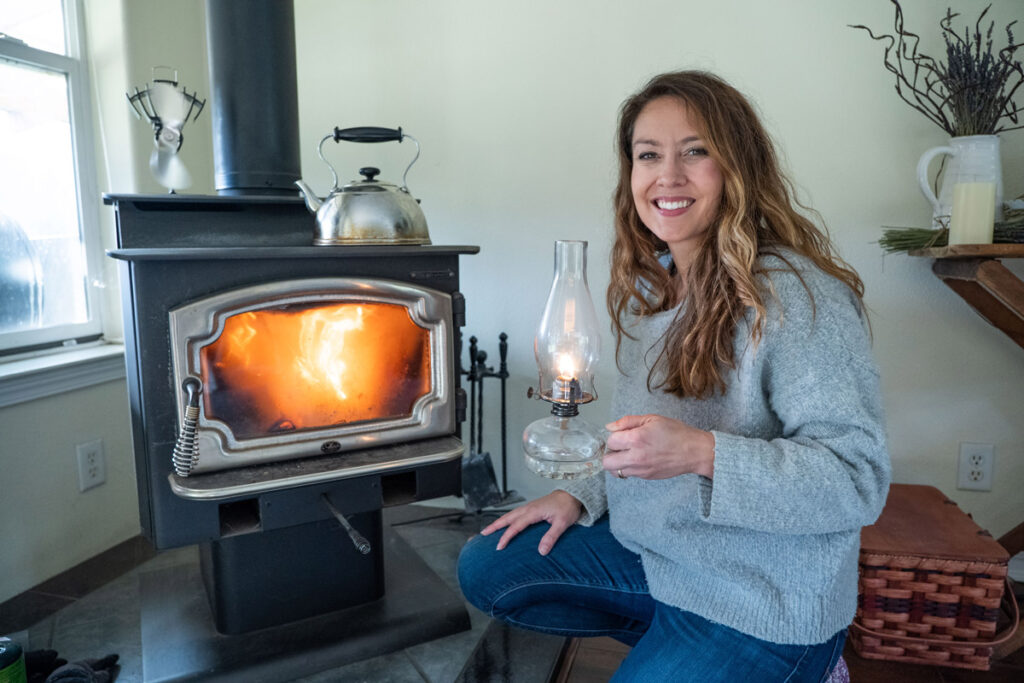
Let There Be Light
When the power goes out in a winter storm, there’s nothing like the comfort of light to bring a sense of security to the situation. When it comes to lighting, we can run a lamp or two off the generator while still powering the freezers.
I have been making beeswax and lard candles for years. It’s also easy to make soy candles and store them away for dark stormy nights. We’ve had some pretty awesome times sitting in candle-lit rooms. Here are some fun things to do during a power outage to keep boredom at bay.
We keep an oil lantern on hand with extra oil and wicks because I find it gives off more light than candles. When my kids were young, I didn’t want them moving around the house with candles, so the brighter light from the oil lamps served us well.
We use battery-powered headlamps, which are wonderful when it gets dark early and you still have livestock chores outside. It keeps both hands free to accomplish tasks safely, and batteries are easy to store and have a long shelf life.
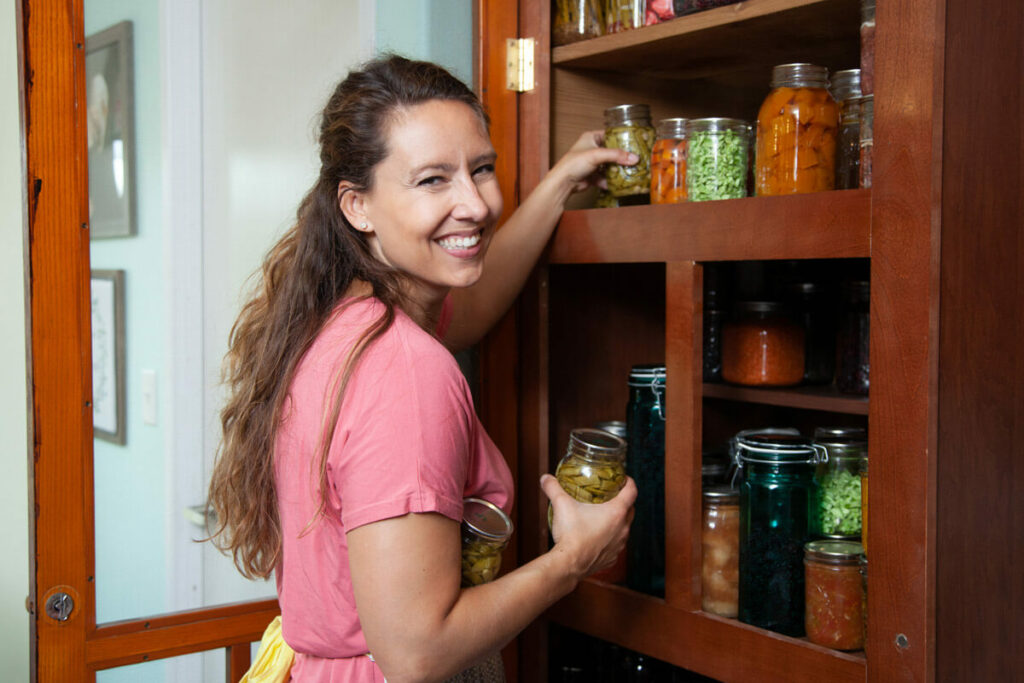
Food Storage
Of course, you need to have food on hand, especially if it's a prolonged period of time. One of our practices here on our homestead is growing, raising, and preserving enough food to take us through the year. Canning, dehydrating and freezing as much food as we can is so helpful.
We raise all of our meats, so we're very self-sufficient in that regard. I estimate that we grow 55 to 60% of our fruits and vegetables on our homestead. We eat fresh from the garden as long as possible, but I'm definitely preserving and putting up for the off months.
That still leaves foods we can't grow ourselves that must be purchased from the store or ordered online. I basically have a backup grocery store in my home. My must-have pantry items for long-term-storage keep food on the self for prolonged situations, like winter storms.
So you don’t feel overwhelmed with stocking your pantry, I find it easier on my budget to pick up one or two extra items each time I shop and keep them on the reserve shelf. It helps to start building your pantry without it being a hardship. Make sure to rotate your foods for freshness.
I keep an eye on all my stored crops in the pantry (garlic, onions, pumpkin, squash). When you see one beginning to go bad, be sure to remove it from the others. Before a storm hits, I use these foods to make some quick breads or sauces to add to pasta.
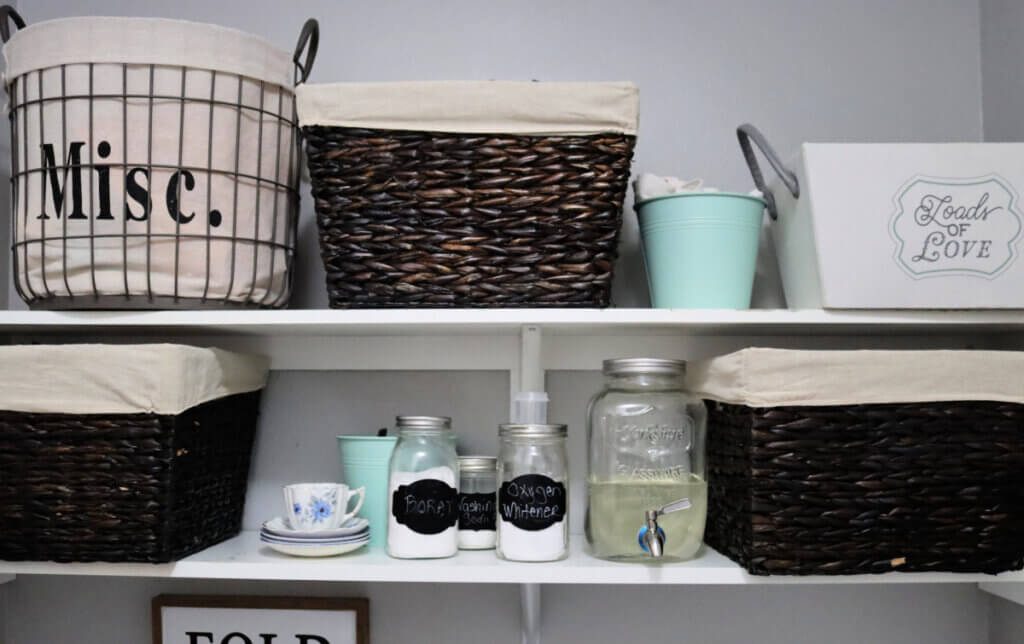
Clean Dishes and Laundry
When I know we’ll probably lose power, I do as much laundry as possible. Trust me when I say when the power's been out for multiple days or even a week, there will be mounds of laundry to do when it finally comes back on.
If the dishwasher is full of dirty dishes, run it and put away the clean dishes. Then, if the power goes out, you have an empty dishwasher to put all the dirty dishes into so they're not piling up in the sink.
If we lose power for an extended period of time, I’ll use paper plates so that we don’t have tons of dirty dishes piling up on our counter. I don’t use paper plates very often, but I keep them in reserve for times like this.
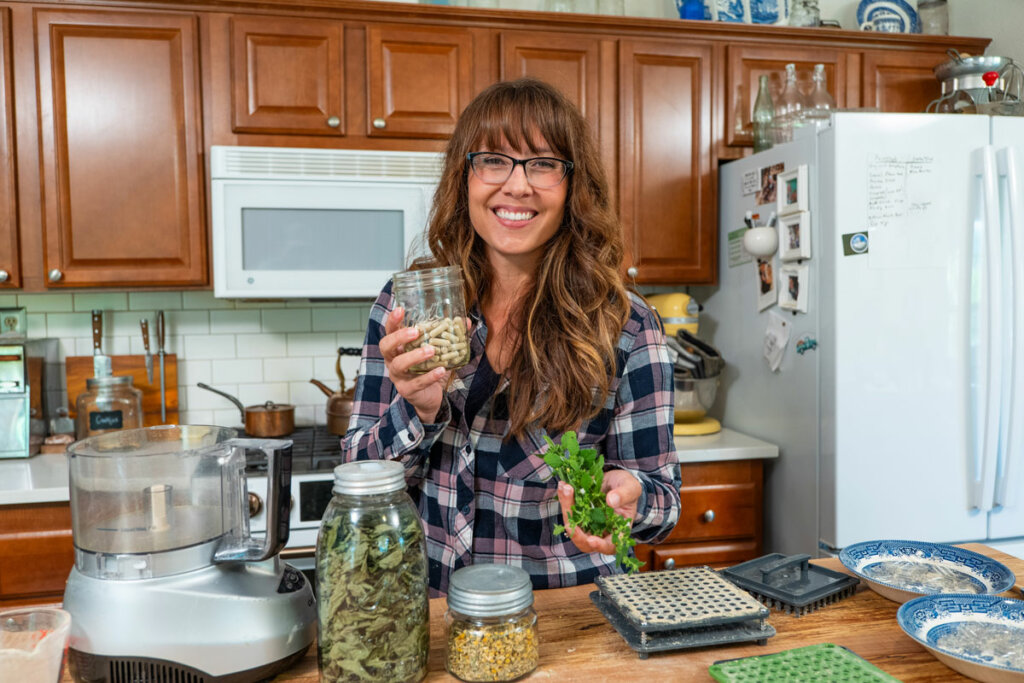
Medications
If you're on any type of medication, you can't just stop taking it. Going cold turkey is not good for our bodies. I strive to improve my health as much as possible and not take pharmaceutical medications, but sometimes that is not possible.
Some natural medications can require a prescription, too. Depending on your insurance company, most will fill your prescription about five to seven days before it's due. They do keep track, so don't take this tip as a way to abuse the system and have a huge stockpile.
I recommend refilling about seven days before it's due and having a buffer of at least a couple of weeks' worth of my medications in case you can’t refill during a winter storm. Keeping your herbal medicine cabinet stocked months ahead is a good practice, too.
Pro Tip: If you are new to herbal medicine, a good place to start is with this post on 7 Ways to Use Medicinal Herbs at Home.
Now that you know how to prepare for a winter storm, are you feeling inspired to take a look at the general preparedness around your homestead? Download this free checklist to serve as your guide!
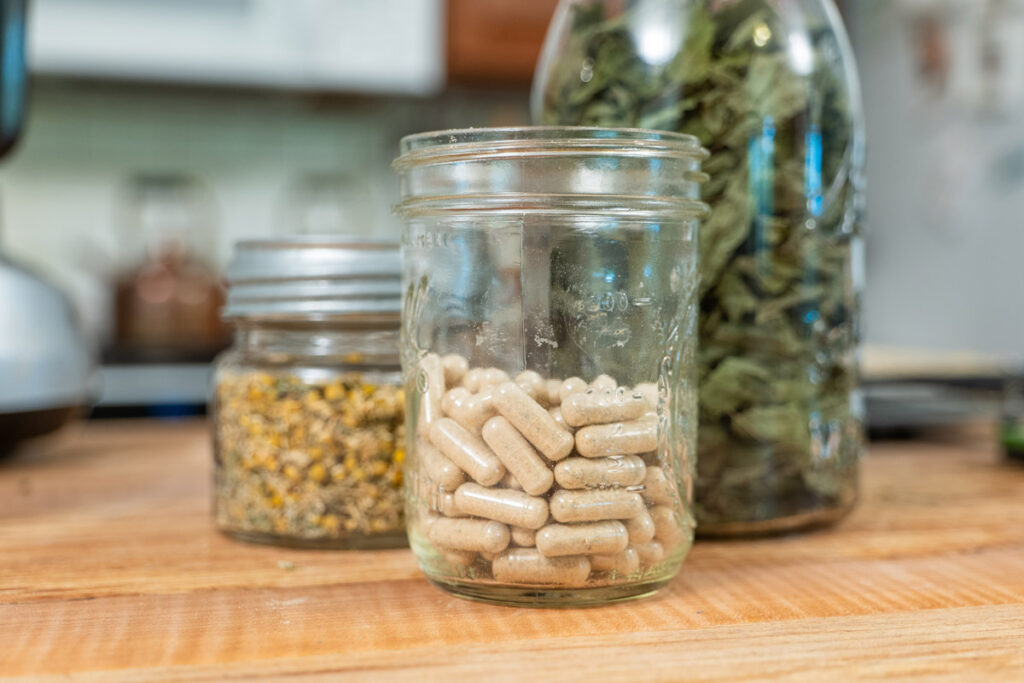
Resources
Podcast #196
- DuroMax XP 1200 EH
- Super Bright Lumen Portable Outdoor Emergency Lamp Lights
- LED Headlamp Flashlight
- Lamplight Chamber Oil Lamp
- Lamplight Ultra-Pure Lamp Oil
- Free Pressure Canning Series
- Verse of the Week – Ephesians 1:17-18
Podcast #220
Podcast #170
- How to Make Homemade Crackers in 5 Minutes
- Verse of the Week – 2 Corinthians 9:8
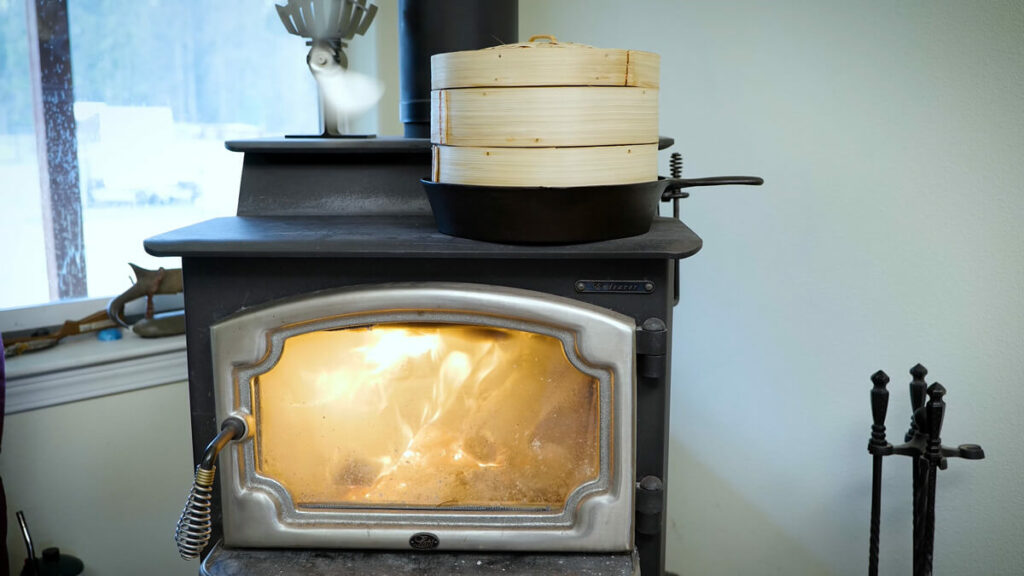
Other Articles You May Enjoy
- A Military Wife’s Look on Homestead Preparedness
- How to Prepare for a Power Outage
- Self Sufficient Homesteading Tips for the Long Haul
- 8 Items You Need In Your Car
- Ways to Store & Purify Water at Home
- 11 Ways to Cook Off-Grid Without Power
- How to Cook on a Wood Stove
- 10 Ways to Keep Warm Without Electricity
- How to Use a Generator in a Power Outage


